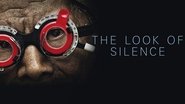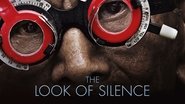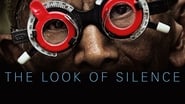Dynamixor
The performances transcend the film's tropes, grounding it in characters that feel more complete than this subgenre often produces.
Sharkflei
Your blood may run cold, but you now find yourself pinioned to the story.
StyleSk8r
At first rather annoying in its heavy emphasis on reenactments, this movie ultimately proves fascinating, simply because the complicated, highly dramatic tale it tells still almost defies belief.
Mabel Munoz
Just intense enough to provide a much-needed diversion, just lightweight enough to make you forget about it soon after it’s over. It’s not exactly “good,” per se, but it does what it sets out to do in terms of putting us on edge, which makes it … successful?
room102
Nominated for an Oscar for Best Documentary in 2015This is a sequel/companion documentary to THE ACT OF KILLING (2012) about the genocide in Indonesia, this time seen from the POV of the family whose one of its members been murdered.Everything about this is strange. From the calmness of the people talking about the killings, to the calmness of the members of the victim's family. It's like everything is either trivial or told from a distance.Plus, there is the strange situation of people talking about forgetting and forgiveness, while obviously remembering everything and basically threatening the brother. Again, very strange feeling throughout the entire movie.Like the previous film, there is a strange feeling of trivializing genocide and brutally murdering of people. I thought the first movie was better constructed. This film feels like bits and pieces of interviews without a real coherent structure.
DareDevilKid
Reviewed by: Dare Devil Kid (DDK)Rating: 4.5/5 starsA terrifying study in mass moral rationalization, "The Look of Silence" finds documentarian Joshua Oppenheimer returning to the subject matter of his Oscar-nominated "The Act of Killing". That film was about the slaughter of some one million communists in Indonesia in the mid 60s. Oppenheimer met with some of the many killers - none of whom were ever punished and who mostly consider themselves heroes - and had them re-enact the murders they committed. It was grisly and at times surreal. Astonishingly, Oppenheimer has followed his 2013 documentary with an even more powerful film that features much more soul- pricking confrontation.There's nothing surreal about "The Look of Silence"; it's painfully real. In it, Oppenheimer follows a possibly foolish albeit immensely brave and deeply compassionate man named Adi Rukun as he searches out the many people responsible for the particularly gruesome slaughter of his brother, Ramli, who was killed before Adi was even born. The murderers - known as leaders of death squads assigned to different villages - who were sanctioned by the then military upheaval, have lived right alongside the families of the people they killed for more than fifty years now. Many have become rich and powerful. The slaughter is taught as a positive thing in elementary school. One killer even wrote a book - with illustrations - about his exploits.Adi, an optician by profession, uses eye tests as a ruse to get the killers talking. He quickly finds that none of them express regret. It's a frightening illustration of how cavalier the perpetrators of ethnic cleansing can be about their heinous acts. Meanwhile, Oppenheimer seeks out the two men who actually killed Ramli, and they happily take him to the riverside site of the murder and reenact it, after which they smilingly pose for a snapshot. Oppenheimer also spends a great deal of time with Adi's parents - his blind, senile, 103- year-old father and still-grieving, bitter mother. Their rustic village world and the beautiful tropic setting serve as an odd contrast to the countless tales of violence.It isn't clear exactly what Adi is hoping to accomplish - he's unearthing the truth, sure, but no one seems to care much. It's as if an entire country has just agreed to forget, or rewrite, its own awful history, even as this compelling documentary yanks our attention to the fact that the architects of a massive tragedy remain free and unrepentant, serving a chilling warning that it could all happen again. This leaves Adi acquiescingly and stoically listening to horror stories from the perpetrators' mouths, even as you sense the seething outrage behind his eyes. Replete with the potential to induce nausea, "The Look of Silence" is so disturbing because so few people in it seem disturbed.
Sledge Hammer
This documentary is first of all, the visceral fermentation of a man that can withhold and suppress any retributive feeling, with almost zen-like attitude, while his eyes humidify with utter contempt as he stares into the face and gestures of his brother killers gone old ... and doing quite well. Directly or indirectly, he's just formulating the questions that in most cases seem nonsensical to the perpetrators of the mass killings that took place in the 60' Indonesia. The real tragedy unfolds as the footage unveils fully towards the end, because u realise that there is no action that Adi, or any of us could take, except forgiveness, against people that never even formulated in their own language, the concept of morality. It's like looking at some grumpy old man talking about a high-school "beef", back in the days, with the "commies", that ended a bit sour ... Except the sourness of that "beef" is counted in the slaughter of human lives, that never got redeemed, apologized for, or felt any regret about them. It's not even really about religious or political indoctrination, but definitely it's a documentary about the versatile human nature that set's us apart so much one from another, to the extent where one can legitimately ask : Ar we even belonging to the same species? Endure, all you that feel compassionate about the world.
Bryan Kluger
I didn't think it was possible to outdo one of the most compelling documentaries about the atrocious Indonesian killings during the mid 60s, but never say never. Joshua Oppenheimer set out over the last decade or so to confront and interview the mass murderers and victims of the Indonesian killings. Oppenheimer got Errol Morris and Werner Herzog on board to to produce his documentary, which was called 'The Act of Killing'.'The Act of Killing' followed a few of these mass murderers who killed literally thousands of innocent people over the span of a year or two. These people were men, women, and children who were thought to be communists. These victims weren't just shot in the head, but they were sadistically tortured and killed by a variety of ways. These murderers are still alive today and are considered heroes by the government, but are still feared by the common folk. It truly is unbelievable that the Indonesian government and paramilitary are still alive and well today, and are still in power, where these murderers walk free with no remorse.'The Act of Killing' earned an Oscar nomination for Best Documentary. Needless to say, this documentary didn't shed any good light on the Indonesian government nor the military, but Oppenheimer went back to make a follow up documentary, because his story is far from being over, which brings us to 'The Look of Silence'. This documentary is just as good if not better than 'The Act of Killing' and will draw tears and actually keep you on the edge of your seat for fear of Oppenheimer's life and his subject.'The Look of Silence' follows a single family, living in a small village in the heart of where the genocide of the 60s took place. The youngest son named Adi, who wasn't born at the time, now has a family and helps people with their eye glass prescriptions. Adi sets out to confront the mass murderers who tortured and killed his older brother Ramli. His bottomless devotion doesn't stop at confronting these people, but goes further into trying to get everyone in his country to seek the truth and start admitting what actually happened, because as we saw in 'The Act of Killing', the people in power will never admit to anything. It brings tears to my eyes as Adi uses his very calm demeanor, holding back his own tears and big gulps of breath as he tries to get answers and the killers to admit what they had done.Throughout the film, Adi confronts the killers who were concomitantly involved with his brother's death, then later in the film, he talks with the murderers who actually killed him. Each interview is more suspenseful than the one before it, as these people who are still in power are not too happy to be answering questions about this, which none of them actually want to come to terms with what they did. In fact, they still revel in the fact that they committed all these heinous crimes and consider themselves good people. It's all so heartbreaking as Adi begins to put the pieces together of his brother's death and who actually was involved, which hits closer to home than any of us would like to see.Adi is a simple man, but he is one of strong conviction to seek the truth without being a jerk. He is calm, collected, and always wise with his words and actions. He's a deeply exceptional person, and you can't help by connect with him on this very emotional journey. Oppenheimer is always by his side and with his camera, as he takes in the beautiful landscapes of Indonesia with his artistic eye. Almost every scene is a beautiful painting with so much pain behind it. I have no doubt that 'The Look of Silence' will win more awards this year, and this continues to show us the Joshua Oppenheimer is one of the best documentary filmmakers working today.





